

| PREVIOUS | HOME | NEXT |
Panelists ponder industry reputation
by Resolve Editor Kate Tilley
Industry perception and performance was the topic for a lively panel discussion at the NZILA half-day conference in September.
Panelists were Jo Mason, CEO of NZbrokers; Jon Duffy, CEO at Consumer NZ; and Tim Grafton, CEO at the Insurance Council of NZ.
Ms Mason said perception and performance in the insurance industry “don’t necessarily align”. Brokers were customer advocates for the insurer and advisers to the customers. “Brokers are good at advocating for the customer with claims, so customers see the value of a broker,” she said.
“Brokers give good advice. It’s their job to understand policy wordings and explain to customers what they mean. The code of compliance legislation requires that customers understand their policies and brokers must demonstrate competency.”
But insurer perception was “a tough gig and insurers are on a hiding to nothing”, exacerbated by the media publicising “bad stories”.
Ms Mason said: “Insurers are becoming more customer focused but that doesn’t always translate in the media world. Over the past 10 years, there have been unprecedented events and, Southern Response aside, insurers have performed well in the earthquakes. Brokers are becoming more professional and must prove that to the regulator. Insurers and brokers perform well, but it’s not transpiring.”
Southern Response is a NZ Government-owned company responsible for settling claims by AMI policyholders for Canterbury earthquake damage that occurred before 5 April 2012 (the date AMI was sold to IAG).
Ms Mason said industry performance had “tilted too far towards shareholder satisfaction but must be on customer satisfaction, which will lead to shareholder satisfaction. It’s a hard nut to crack”.
Asked whether industry perception really mattered, Ms Mason agreed insurance was a grudge purchase, but highlighted the need to attract and retain “really good people in the industry”.
“There’s a lack of understanding about what we do. How to change perceptions? Better education, more positive publicity? I really don’t know the answer.”
Insurance ‘a necessary evil’
Mr Duffy said the insurance sector had an important story to tell. “Everyone needs insurance, it provides security and certainty and makes the economy function effectively. But it’s rare for insureds to reflect on that; they just know they have to buy it. For the average consumer, it’s a necessary evil or an unequal bargain they must endure.”
He said a Consumer NZ 2019 consumer survey with more than 1,000 respondents showed trust with insurers was low. “I trust my dentist, even though I know a visit is painful. I don’t have that relationship with an insurer. Why? Perception is amplified by modern corporates’ profit over people [mentality] and insurers are among them.
“Insurance has an image issue and that crowds out attempts to change it. There are highly visible examples of bad behaviour. Consumers see insurance as too expensive and therefore not value for money. Statistics NZ data shows a 40% increase in personal lines. Is there an increase in value to justify that? I’ll leave that hanging.”
Mr Duffy said the status quo was not sustainable long term, and more onerous legislation was likely.
“The industry must help itself to address the underlying lack of trust.”
In Consumer NZ’s survey, only 13% of respondents were confident insurers could give good advice, which was worse than banks (21%) and only 8% thought insurers always offered fair terms.
“Most policies are take it or leave it. Insurance was carved out from unfair terms legislation – were there back-room deals to get that? If customers don’t understand the terms of the policy, how can they consent to the terms and conditions?”
Mr Duffy said 25% of survey respondents found comparing policies difficult. “It’s hard for insureds to make informed choices, they need genuine comparison and not just on price.”
He said 25% of respondents had had problems with insurance. “The survey results are a red flag for the industry. It will be interesting to see if Covid-19 changes things in the 2020 survey.”
He said customers had expectations they would be covered under travel policies for pandemic-related travel disruptions but now complained that travel insurance was worthless. “They had no understanding of the force majeure clause and may not bother with insurance in the future. Insurers should be cautious about exclusions.
“The industry must confront the fact that it’s the problem, not the public. The industry has burned through a lot of the public’s goodwill by putting profits before people.
Consumers are powerless in the transaction so they enter it with unease and reluctance. Insures make record profits and consumers see the examples of bad behaviour,” Mr Duffy said.
But all was not lost. Mr Duffy said insurers that refunded motor and travel premiums during the Covid-19 pandemic set a good example, but refunds were not universal.
“What an opportunity to do the right thing and change perceptions, but why was it not universal? You need to change the culture of the industry, it will take time to rebuild trust. Insurers have vast resources, they can take steps to explain policies in easy-to-understand ways.”
Insurance ‘a promise to pay’
Mr Grafton said the industry wanted customers to have confidence and trust in the sector, the sector to be competitive, and for insurance to be affordable and widely available. To achieve that, “takes everyone to pull in the same direction”.
“Insurance is the business of the many looking after the few; most people don’t need to make claims. The perception is that insurers’ terms & conditions are designed to give them the ability to swerve on claims. [But insurance is the] promise to pay when something goes wrong.”
He said all valid claims were paid. “Fewer than 10% of claims are not paid and it’s generally for fraud, a claim being withdrawn to protect a no-claim bonus, or it is under the deductible.”
Mr Grafton said jargon and complexity exacerbated the industry’s poor reputation and frequent regulatory reviews contributed to the perception there was “something fundamentally rotten in the insurance industry”.
He acknowledged “bad stuff has happened” but highlighted the industry’s swift, generous response during the Covid-19 pandemic, including premium reimbursements.
But “the fundamental problem is not easy to fix”.
“Financial literacy is low; insurance is not simple. People claim to have higher levels of knowledge about insurance than [ICNZ] believes they have. The significant gap in knowledge creates a mismatch with cover.”
He highlighted industry moves to improve insurance’s reputation, including:
- the Fair Insurance Code 2020, which commits to plain English policies
- building understanding with education programs, eg FinCap, Banqer
- Implementing best practice in dealing with vulnerable people
- establishing a consumer reference panel.
Mr Grafton said the Fair Insurance Code was overseen by independent, respected individuals and members were required to proactively report breaches.
He warned against over-regulation and over-protection. “Is the regulation proportional to the risk? If we require increased disclosure there’s a risk of overkill and consumers therefore not reading their policies. You can’t oversimplify it either, there’s a need for a balance. Regulation must be designed so it’s fit for purpose.”
Mr Grafton said insurers must be able to attract shareholder support to have capital to pay customers when the worst happened. “We have had heavy catastrophic losses in the past 100 years and now Covid-19. We all identify that more must be done to improve trust and confidence, but there’s no silver bullet, it’s a long, hard slog.”
The industry was adding value with technology, including artificial intelligence and machine learning. “But we must avoid unintended consequences of technology, for example, incorrectly calculated algorithms. We must use technology to enhance the customer experience.”
Mr Grafton said climate change science helped insurers to understand the risk at a more granular level. Many people lived on flood plains or in areas vulnerable to sea level rise. “We must support people through the challenging transitions ahead.”
“The cost of the earthquakes is equivalent to 110 years of premium, not profit. The industry has paid $6 million every hour of every day for 10 years. That’s not putting profit ahead of the customer, it’s responding to the promise,” Mr Grafton said.
“Public perception won’t change overnight, we must settle claims quicker, remove pain points, and focus on technology to strip out costs. We need to give insureds more choice to get the policies they need.”
NZILA would like to thank its conference sponsors:
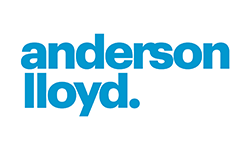

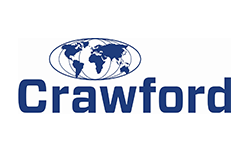
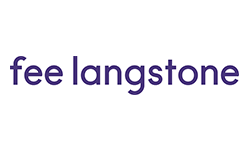
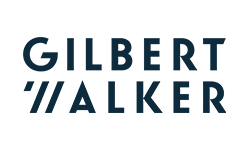
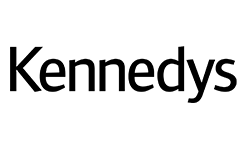


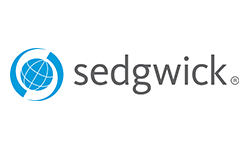
Resolve is the official publication of the Australian Insurance Law Association and
the New Zealand Insurance Law Association.

